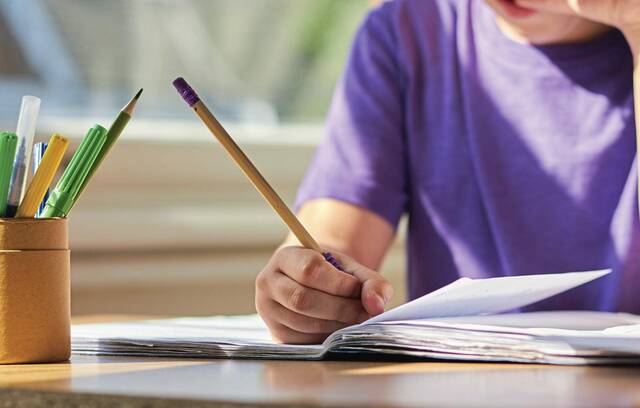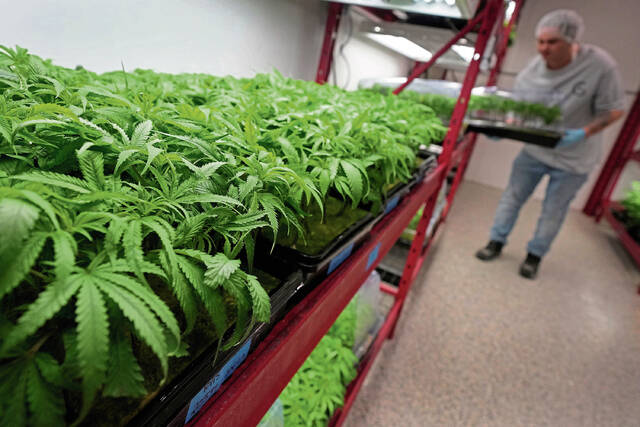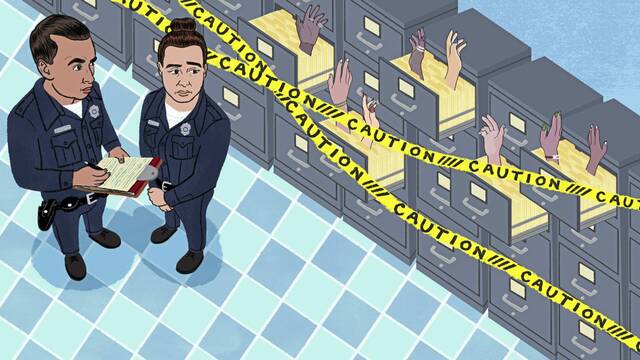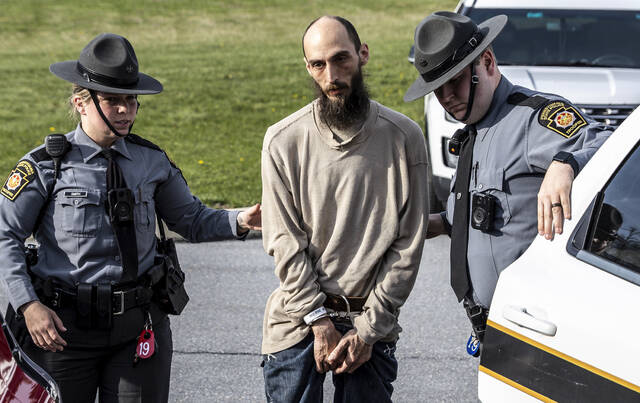Pennsylvania public school students have made little progress in making up for the learning losses suffered during the covid-19 pandemic.
The latest Pennsylvania System of School Assessment results released Monday show just over half of test-takers in grades three through eight statewide scored proficient or advanced, which is regarded as grade level or above, on the language arts exam.
Slightly more than a third of students in those grades hit that mark on the PSSA math test when their scores were averaged together. And just about 6 in 10 students who took the state science exam in fourth and eighth grades scored at or above grade level when averaged together.
But none of those statewide averages reached the level they were prior to the pandemic.
Results on the Keystone Exams in language arts, biology and algebra administered in middle and high schools and reported when students are in 11th grade failed to reach pre-pandemic levels too.
School-level participation and achievement data is accessible on the Future Ready PA Index, a comprehensive system that records a broad range of indicators, such as English language acquisition, career readiness, access to advanced coursework, and regular attendance in addition to school performance.
The dismal scores on the 2022 assessments has Republican lawmakers pushing for government-funded scholarships to expand school choice. But Acting Education Secretary Eric Hagarty said schools are working hard to bring students up to speed.
There are some signs of gains, specifically the uptick in the percentage of students scoring at or above grade-level on the seventh- and eighth-grade language arts exam, as well as in nearly all grades three through eight on the math assessment.
“We expect student performance will continue to improve as students and educators proceed with a more normalized, uninterrupted year of in-person learning,” Hagarty said.
But House Speaker Bryan Cutler, R-Lancaster County, is showing signs that his patience is wearing thin.
“This year’s abysmal PSSA scores, especially in the areas of language arts and biology, are another reminder that government forcing students to remain in a broken education system that is failing today’s students,” he said in a statement.
Cutler was infuriated over the delay in the release of the 2021 state assessment scores, which showed a dip in student performance.
“When Democrats here in Pennsylvania chose to side with their special interest allies and political donors instead of parents, families and students, they did so at the expense of preparing our students for a rapidly changing world,” Cutler said.
But a spokeswoman for House Democrats, Nicole Reigelman, fired back, saying Democrats have been champions for students and teachers. She said they fought for increased funding to help students academically as well as “socially and emotionally, and to lessen the reliance on standardized tests when assessing student progress and school success.”
Meanwhile, a spokesman the Pennsylvania State Education Association said the assessment results capture only a snapshot of student performance, not the full spectrum of daily learning.
PSEA spokesman Chris Lilienthal said the results mirror those seen in every state, as well as on the National Assessment of Educational Progress which saw the largest decreases in scores ever.
“The PSSA and Keystone Exam results offer signs that many Pennsylvania students are starting to recover from pandemic-driven learning delays, but we still have a way to go,” Lilienthal said. “Educators and support professionals in our public schools have been working very hard day after day for more than two years now to move students forward. Their task is a difficult one, and time is needed to get students to where we’d like them to be.”
Sherri Smith, executive director of the Pennsylvania Association of School Administrators and a former state deputy education secretary agreed, saying the results were not unexpected.
Among the reasons she cited: altered testing environments because of covid-19 mitigation concerns, the shortage of certified teachers, and the need to address the increased learning and emotional concerns of students.
“This is first year where they are really back in in-person and into more normalized routines,” Smith said. “So as students are getting into that, I fully anticipate this coming year you will see the test results rebound some but I think we have to be cautious and not expect they will automatically rebound.”
Contributing to the decline was the impact of the federal government’s pandemic-related decision in 2020 to waive its accountability requirement to test students in grades three to eight and once in high school.
That will have a ripple effect for several years, particularly in Keystone Exam scores, she said. Keystones are administered in middle and high school depending on when students complete the corresponding course and their scores are banked until they are in 11th grade.
Because state exams were waived in 2020, it decreased the number of eligible test-takers who would have sat for the Keystones that year, including those who are more advanced and whose scores could have boosted the results.
Still, Cutler said he hopes the incoming governor will support legislative proposals to empower parents.
“We are encouraged Governor-elect (Josh) Shapiro has agreed with some of these proposals in concept and hope we can continue to find common ground on these issues moving forward,” Cutler said, referring to Shapiro’s commitment to increase parental involvement in curriculum decisions and pledge to increase funding for career and technical training.
Shapiro also left open the door to giving direct-to-student tax-funded scholarships to allow students in underperforming public schools to pay for tutoring or pay tuition to attend a different school. The state House passed lifeline scholarship legislation that resembles the concept that Shapiro, whose children attend a private school, said he could support.
Nathan Benefield, senior vice president of the conservative-leaning Commonwealth Foundation, said Shapiro should make that stalled scholarship proposal a top priority.
Benefield said after public schools received over $6.7 billion in federal pandemic aid and are set to receive a record $14.8 billion in state funding this fiscal year, “it’s time we provide students with a lifeline to an excellent education.”
Smith said there is still a year left to spend federal aid to help students overcome pandemic-related learning loss.
She also questioned the rationale for using state exam scores to expand school choice when there is no evidence that learning gaps didn’t occur among private school students.
“I guarantee you in my book covid wasn’t just impactful to students that went to public schools but all citizens and all students,” Smith said.
Rather than using the data to say schools aren’t doing their jobs, she said, “We all need to collectively work together to overcome learning and emotional concerns that our students have no matter what educational environment they are in.”








